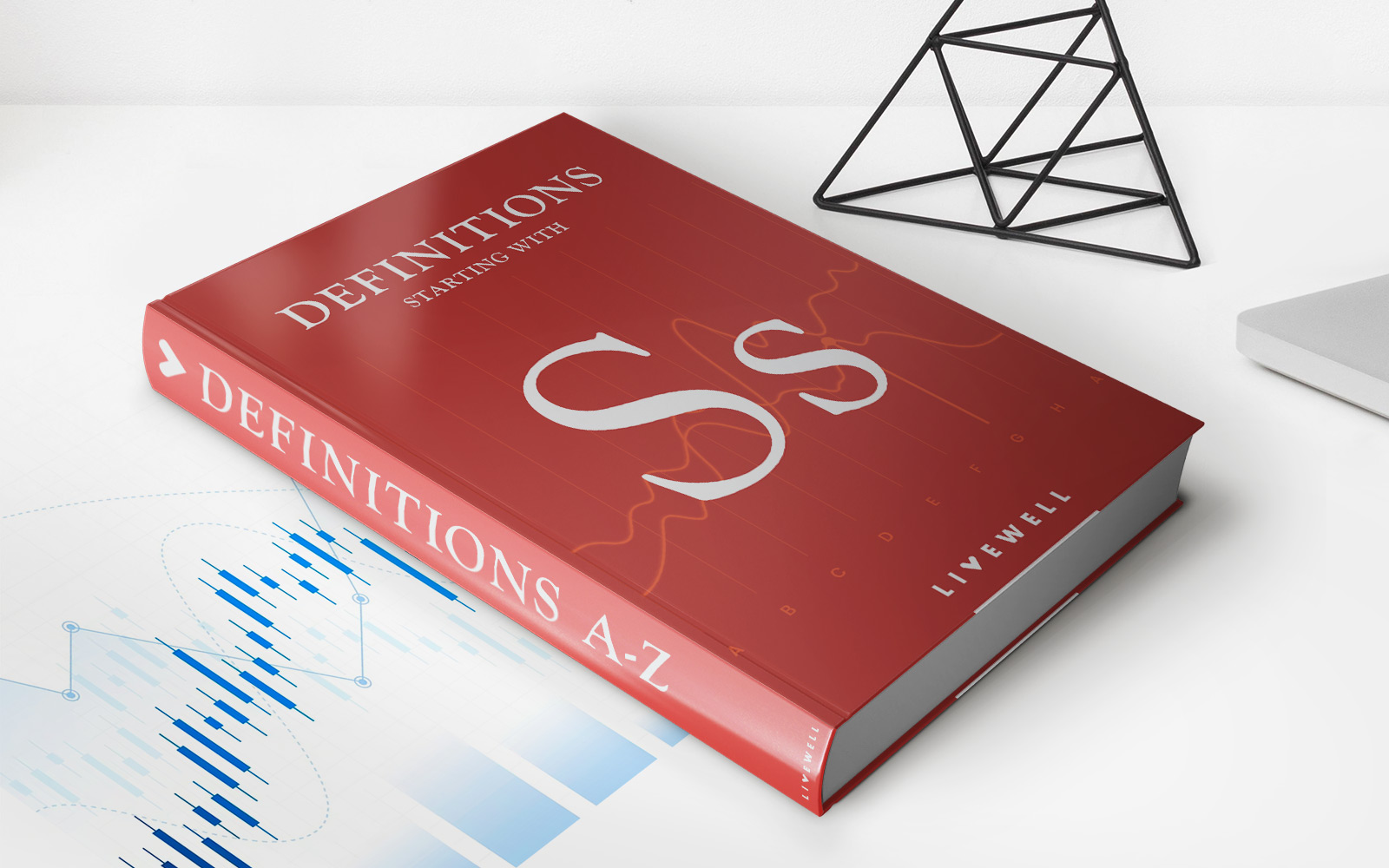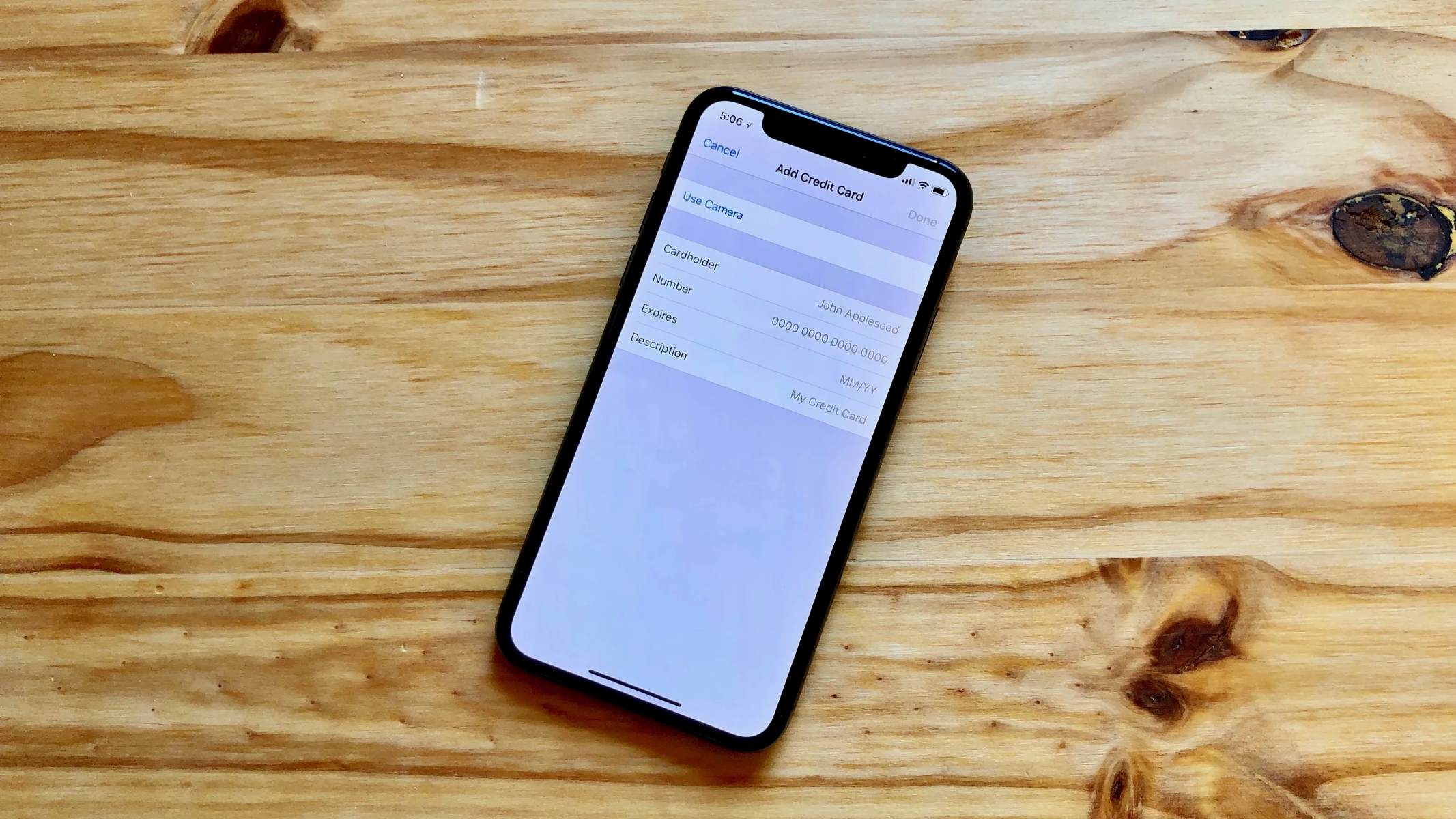Home>Finance>How Does Paying Off Student Loans Affect Credit Score


Finance
How Does Paying Off Student Loans Affect Credit Score
Modified: March 6, 2024
Paying off student loans can positively impact your credit score. Learn how managing your finances can lead to better financial stability and future opportunities.
(Many of the links in this article redirect to a specific reviewed product. Your purchase of these products through affiliate links helps to generate commission for LiveWell, at no extra cost. Learn more)
Table of Contents
- Introduction
- Understanding Credit Scores
- What Is a Student Loan
- How Student Loans Impact Credit Scores
- Paying Off Student Loans and Credit Scores
- Positive Effects of Paying Off Student Loans on Credit Scores
- Negative Effects of Paying Off Student Loans on Credit Scores
- Factors That Influence Credit Scores After Paying Off Student Loans
- Tips for Managing Student Loans and Credit Scores
- Conclusion
Introduction
When it comes to managing personal finances, understanding how different factors impact your credit score is crucial. One significant financial obligation that many individuals face is student loans. These loans enable students to pursue higher education but can have a lasting impact on credit scores.
A credit score is a three-digit number that helps lenders evaluate an individual’s creditworthiness. It is calculated based on various factors, including payment history, credit utilization, length of credit history, new credit, and credit mix. Your credit score plays a significant role in determining the terms and conditions of loans, credit cards, and even renting housing in some cases.
Student loans, on the other hand, are a type of debt taken on to cover education expenses such as tuition, books, and living expenses. They can be obtained through the government or private lenders and usually come with an established repayment plan.
In this article, we will explore how paying off student loans affects credit scores. We will cover both the positive and negative effects of paying off student loans and discuss the various factors that influence credit scores after the loans are paid off. Finally, we will provide some tips for effectively managing student loans and maintaining a healthy credit score.
Understanding Credit Scores
Before delving into how paying off student loans affects credit scores, it’s important to have a clear understanding of what credit scores are and how they are calculated.
A credit score is a numerical representation of an individual’s creditworthiness. It is a tool that lenders use to assess the risk involved in lending money to someone. The most commonly used credit scoring model is the FICO score, which ranges from 300 to 850. The higher the credit score, the lower the risk in the eyes of lenders.
Several factors contribute to the calculation of a credit score:
- Payment History: This is the most significant factor and accounts for approximately 35% of your credit score. It reflects how well you have repaid your debts in the past. Consistent on-time payments positively impact your credit score, while late or missed payments can have a negative effect.
- Credit Utilization: This factor accounts for around 30% of your credit score. It represents the percentage of your available credit that you are using. Lower credit utilization ratios (ideally below 30%) are considered favorable, as it shows responsible credit management.
- Length of Credit History: This factor takes into account the length of time you have had credit. A longer credit history is generally viewed positively by lenders, as it provides more data on your credit behavior.
- New Credit: Opening multiple new credit accounts within a short period can negatively impact your credit score. Lenders may interpret this as a sign of financial instability. Applying for new credit cards or loans should be done cautiously.
- Credit Mix: Having a diverse mix of credit accounts, such as credit cards, loans, and a mortgage, can positively impact your credit score. This factor accounts for about 10% of your credit score.
It’s important to note that each credit reporting agency may use a slightly different scoring model, but the core factors remain the same. Understanding these factors is essential to comprehend how paying off student loans can affect your credit score.
What Is a Student Loan
A student loan is a type of financial assistance that helps students pay for education-related expenses. It is a loan specifically designed for students to cover the cost of tuition, books, housing, and other educational necessities. Unlike scholarships or grants, student loans must be repaid over time, typically after a grace period following graduation or leaving school.
Student loans can be obtained from either the government or private lenders. Government-backed loans, such as Federal Student Loans in the United States, offer more favorable terms and flexible repayment options. These loans are often based on financial need and come with fixed interest rates.
Private student loans, on the other hand, are offered by banks, credit unions, and other private lenders. These loans may have variable interest rates and less flexible repayment terms. They are often used to bridge the gap between the cost of education and the financial assistance available through government loans and other forms of aid.
It’s important to carefully consider the terms and conditions of student loans before borrowing. Understanding the interest rates, repayment plans, and any potential penalties or fees is crucial to ensure responsible borrowing and repayment.
Student loans can have a significant impact on an individual’s financial future, as they often involve substantial sums of money. It’s essential for borrowers to consider their long-term financial goals and budgeting strategies when entering into student loan agreements.
Now that we have a clear understanding of student loans, let’s explore how paying off these loans can influence your credit score.
How Student Loans Impact Credit Scores
Student loans can have both positive and negative effects on credit scores. Understanding these impacts is crucial for borrowers to make informed financial decisions and manage their credit effectively.
Positive Effects: When managed responsibly, student loans can have several positive effects on credit scores. First, making timely payments on student loan installments demonstrates a borrower’s ability to handle credit responsibly, which can contribute to a positive payment history. This accounts for a significant portion of the credit score calculation.
Additionally, having student loans can help establish a credit history. For individuals who are just starting to build credit, having a student loan can provide a valuable credit reference. A longer credit history generally improves credit scores, as it provides more data for lenders to assess creditworthiness.
Negative Effects: On the other hand, student loans can also have negative effects on credit scores if not managed diligently. Late or missed payments on student loans can have a significant impact on credit scores. Payment history is the most crucial factor in credit score calculations, and any negative marks can lower a borrower’s credit score.
Additionally, carrying high balances on student loans can affect credit utilization, which is another important factor in credit score calculations. Credit utilization is the percentage of available credit a borrower is using, and higher balances on student loans can increase this ratio, negatively impacting credit scores.
Borrowers who default on their student loans or enter into deferment or forbearance can also experience negative effects on their credit scores. Defaulting on a loan can severely damage credit scores and make it challenging to secure future credit.
It’s important to note that the impact of student loans on credit scores may vary for each individual. Factors such as payment history, credit utilization, and the overall financial picture of the borrower can influence how student loans impact credit scores.
Now that we understand how student loans can affect credit scores, let’s delve into how paying off student loans can impact credit scores.
Paying Off Student Loans and Credit Scores
Many borrowers wonder how paying off their student loans will impact their credit scores. Paying off student loans can have several effects on credit scores, both positive and negative.
Positive Effects: One of the primary positive effects of paying off student loans is the improvement in credit utilization. When you pay off a loan, the balance decreases, which can lower your credit utilization ratio. Lower credit utilization is generally viewed favorably by lenders and can contribute to an increased credit score.
Paying off student loans can also positively impact your payment history. Consistently making on-time payments and eventually paying off the loan demonstrates financial responsibility and can have a positive effect on your credit score.
Negative Effects: While the overall impact of paying off student loans is positive, there may be some short-term negative effects on your credit score. Paying off a loan can reduce the average age of your credit accounts, which is a factor in credit score calculations. However, this impact is typically minor and is outweighed by the positive effects of paying off the loan.
It’s important to note that the duration of the loan may also impact your credit score. If you have been making on-time payments for a long time, paying off the loan may result in a temporary dip in your credit score. However, this dip is usually short-lived, and your credit score should recover over time.
Overall, paying off student loans is a significant financial milestone and can positively impact your credit score in the long run. The positive effects of lower credit utilization and improved payment history generally outweigh any temporary negative impact.
However, it’s essential to remember that paying off student loans is just one aspect of maintaining a healthy credit score. Other factors, such as making timely payments on other credit accounts, managing credit utilization, and maintaining a diverse credit mix, all contribute to a strong credit score.
Now that we understand the effects of paying off student loans on credit scores, let’s explore some of the factors that can influence credit scores after paying off student loans.
Positive Effects of Paying Off Student Loans on Credit Scores
Paying off your student loans can have several positive effects on your credit score. Here are some of the key benefits:
Improved Credit Utilization Ratio: Paying off your student loans reduces your overall debt load, which can significantly improve your credit utilization ratio. Credit utilization refers to the percentage of your available credit that you are using. Lowering this ratio by paying off your loans shows responsible credit management and can result in an increase in your credit score.
Positive Payment History: One of the most crucial factors in credit score calculations is your payment history. Regularly making on-time payments on your student loans demonstrates financial responsibility and reliability to lenders. As you pay off your loans, you continue to build a positive payment history, which can lead to an improved credit score.
Decreased Outstanding Debt: Student loans can be a significant burden, especially when you have high loan balances. By paying off your loans, you decrease your outstanding debt, which can positively impact your credit score. Lenders may view borrowers with lower levels of debt as less risky and more likely to handle future credit obligations responsibly.
Increased Available Credit: As you pay off your student loans, your available credit increases. This increase in available credit can have a positive effect on your credit score. It demonstrates to lenders that you have access to additional credit but are not relying heavily on it. However, it’s crucial to use this increased credit responsibly to avoid falling into debt again.
Enhanced Creditworthiness: Paying off your student loans can enhance your overall creditworthiness. Lenders consider borrowers who have paid off their debts as more reliable and responsible. This can lead to better loan terms and interest rates in the future and could potentially save you money over time.
It’s important to note that the positive effects of paying off your student loans may take some time to fully reflect on your credit score. Credit score calculations are based on historical data, and it may take a few months for the credit bureaus to update your credit report and reflect the positive changes.
Overall, paying off your student loans can have lasting positive effects on your credit score. It improves your credit utilization ratio, establishes a positive payment history, reduces your outstanding debt, and enhances your creditworthiness. These factors contribute to a stronger credit profile and can open doors to better financial opportunities in the future.
Next, let’s take a look at the potential negative effects of paying off student loans on credit scores.
Negative Effects of Paying Off Student Loans on Credit Scores
While paying off your student loans generally has positive effects on your credit score, there can be some negative impacts as well. Here are some potential drawbacks to consider:
Temporary Dip in Credit Score: When you pay off a loan, particularly if it is one of your oldest accounts, it can temporarily lower the average age of your credit history. This decrease in average age can result in a slight dip in your credit score. However, this effect is typically minor and temporary, as the positive factors of paying off the loan outweigh the short-term dip.
Reduced Credit Mix: Student loans are considered installment loans, while credit cards are revolving credit. If you pay off your student loans and have no other installment loans, it can affect your credit mix. Lenders generally prefer to see a mix of different types of credit accounts. However, this impact is relatively minor compared to other credit score factors.
Loss of Credit Reference: Paying off your student loans means closing out that credit account. This could potentially result in the loss of a positive credit reference in the future. When you pay off a loan, it no longer contributes to your credit history, which may reduce the overall strength of your credit profile. However, this effect is minimal if you have other active credit accounts and continue to demonstrate responsible credit management.
It’s important to note that the potential negative effects of paying off student loans on credit scores are relatively minor compared to the long-term positive impacts. The temporary dip in credit score can be quickly recovered with continued responsible credit behavior.
Additionally, paying off your student loans offers financial freedom and relief from debt. The peace of mind and improved financial stability that come with being debt-free outweigh the temporary impact on credit scores.
To mitigate any potential negative effects, it’s important to continue practicing good credit habits even after paying off your student loans. This includes making on-time payments on other credit accounts, keeping credit card balances low, and avoiding taking on unnecessary debt.
Now that we have explored the positive and negative effects of paying off student loans on credit scores, let’s discuss the factors that can influence credit scores after paying off student loans.
Factors That Influence Credit Scores After Paying Off Student Loans
After paying off your student loans, several factors can influence your credit scores. Understanding these factors can help you navigate the post-loan repayment period and maintain a healthy credit profile. Here are some key aspects to consider:
Payment History: Your payment history continues to play a significant role in determining your credit scores even after you’ve paid off your student loans. It’s essential to make on-time payments for your other credit obligations, such as credit cards, mortgages, or auto loans. Consistently making timely payments demonstrates financial responsibility and positively impacts your credit scores.
Credit Utilization: The amount of revolving credit you use, also known as credit utilization, affects your credit scores. After paying off your student loans, it’s important to manage your credit card balances responsibly. Keeping your balances low in relation to your credit limits can help maintain a healthy credit utilization ratio and positively impact your credit scores.
Length of Credit History: The length of your credit history is an essential factor in credit scoring. If you paid off your student loans early, it may affect the average age of your credit accounts. However, your credit score can still benefit from a long and positive credit history if you have other active accounts, such as credit cards or a mortgage, that demonstrate responsible credit management.
Credit Mix: Consider maintaining a diverse mix of credit accounts, such as installment loans (like student loans or mortgages) and revolving credit (like credit cards). A varied credit mix can positively impact your credit scores. If you paid off your student loans and only have revolving credit left, it’s still beneficial as long as you manage those accounts responsibly.
New Credit: Applying for new credit after paying off your student loans may impact your credit scores. Each time you apply for new credit, a hard inquiry is typically recorded on your credit report, which can temporarily lower your scores. It’s important to be strategic about applying for new credit and not take on more debt than necessary.
Credit Monitoring and Accuracy: Even after paying off your student loans, it’s crucial to monitor your credit reports regularly for accuracy. Mistakes or inaccuracies on your credit report can negatively impact your credit scores. Checking your credit reports from the major credit bureaus and promptly disputing any errors can help maintain the accuracy and integrity of your credit history.
It’s important to note that credit scoring models may vary slightly, and the specific weight assigned to each credit factor may differ. However, the above factors generally play a significant role in determining credit scores after paying off student loans.
By practicing responsible credit management, maintaining a positive payment history, managing your credit utilization, and diversifying your credit mix, you can continue to build and maintain a strong credit profile even after paying off your student loans.
Now, let’s explore some tips for effectively managing student loans and maintaining a healthy credit score.
Tips for Managing Student Loans and Credit Scores
Managing your student loans and maintaining a healthy credit score go hand in hand. Here are some essential tips to help you effectively manage your student loans and keep your credit scores in good shape:
1. Make Timely Payments: Make sure to make your student loan payments on time every month. Late or missed payments can damage your credit score. Set up automatic payments or reminders to ensure you never miss a due date.
2. Avoid Defaulting: Defaulting on your student loans can have severe consequences for your credit score. If you’re struggling to make payments, reach out to your loan servicer and explore options such as income-driven repayment plans or deferment/forbearance.
3. Track Your Credit Report: Regularly monitor your credit reports to ensure that your student loans are being reported accurately. Look for any mistakes or errors, such as payments not being properly credited or accounts showing as delinquent when they are not. Dispute any inaccuracies immediately to avoid any negative impact on your credit score.
4. Maintain Low Credit Card Balances: Keep your credit card balances low in relation to your credit limits. High credit card utilization can negatively impact your credit scores. Aim to keep your credit card balances below 30% of the available credit limit.
5. Diversify Your Credit Mix: Having a mix of different types of credit accounts, such as credit cards, student loans, and mortgages, can positively impact your credit score. If you only have student loans, consider diversifying your credit mix by responsibly using a credit card or other types of credit.
6. Limit New Credit Applications: Be cautious about applying for new credit. Each application can result in a hard inquiry, which can temporarily lower your credit score. Only apply for new credit when necessary and avoid opening multiple new accounts in a short period.
7. Pay Off Other Debts: In addition to your student loans, focus on paying off other debts, such as credit card balances or personal loans. Lowering your overall debt load can positively impact your credit scores.
8. Keep Your Student Loans Open: Instead of closing your student loan accounts once they’re paid off, consider keeping them open. This can help maintain the positive payment history and length of credit history associated with those accounts.
9. Plan for Financial Goals: Create a long-term financial plan that includes budgeting and saving for future goals. Prioritize paying off your student loans while also allocating funds for other financial objectives, such as emergency savings or retirement planning.
10. Seek Professional Guidance if Needed: If you’re overwhelmed with managing your student loans or need assistance in improving your credit score, consider consulting a certified credit counselor or financial advisor who can provide tailored guidance and support.
By following these tips, you can effectively manage your student loans and maintain a healthy credit score. Remember, responsible financial habits combined with timely payments and diligent credit monitoring are key to achieving financial success and building a solid credit future.
Now, let’s conclude our discussion on the impact of paying off student loans on credit scores.
Conclusion
Managing student loans and maintaining a good credit score are essential components of financial well-being. Understanding how paying off student loans can impact credit scores is key to making informed financial decisions and achieving a healthy credit profile.
Paying off student loans can have both positive and negative effects on credit scores. The positive effects include improved credit utilization, positive payment history, decreased outstanding debt, increased available credit, and enhanced creditworthiness. These factors contribute to a stronger credit profile and better financial opportunities.
However, there may be some temporary negative effects, such as a slight dip in credit score or reduced credit mix. These effects are typically minor and should not deter borrowers from paying off their student loans in a responsible manner.
After paying off student loans, various factors continue to influence credit scores, including payment history, credit utilization, length of credit history, credit mix, and new credit applications. It’s essential to continue practicing good credit habits, monitoring credit reports for accuracy, and diversifying credit accounts to maintain a healthy credit profile.
By following tips such as making timely payments, avoiding default, tracking credit reports, maintaining low credit card balances, and responsibly managing credit, borrowers can effectively manage their student loans and maintain a strong credit score.
Remember, paying off student loans is a significant accomplishment that provides financial freedom and sets the stage for future financial success. By staying proactive in managing your credit and implementing good financial habits, you can build a solid credit foundation and achieve your long-term financial goals.
Now that you understand how paying off student loans can impact credit scores and have the knowledge to manage your student loans and credit effectively, you’re on your way to financial empowerment and a brighter financial future.














